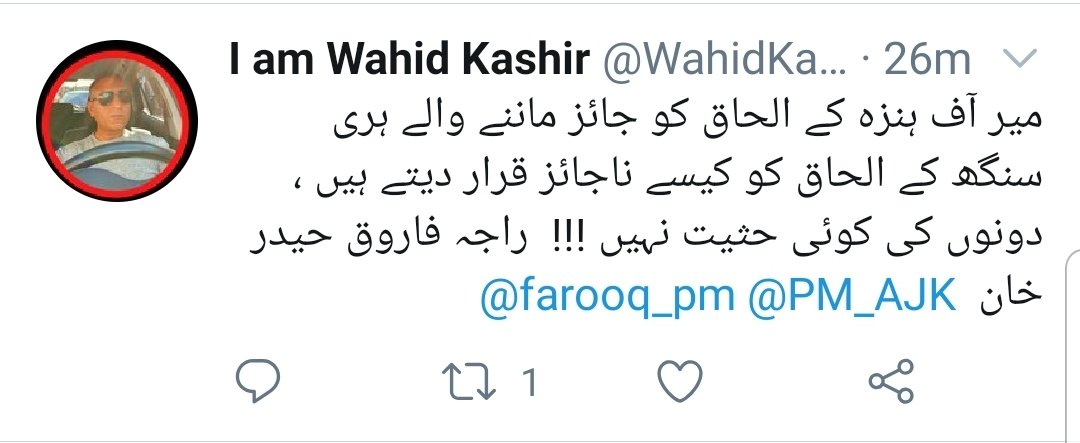
The two accessions are completely different and it would be a distorsion of history if one claims that the two cases are the same.
Here are the reasons:
1. The accession to India by Hari Singh was conditional (to a plebiscite). Hunza was unconditional and permanent.
@farooq_pm
Here are the reasons:
1. The accession to India by Hari Singh was conditional (to a plebiscite). Hunza was unconditional and permanent.
@farooq_pm

2. The masses in Kashmir (minus Sh. Abdullah) were against it. Ref: read the letter of K.H Khurshid from Srinagar on 12.10.1947 to M.A Jinnah.
In Hunza (& also Nagar), historian do not record any such objection.
@iAliTajGB @AbdulKhalidPTI @jamilnagri can attest to this
In Hunza (& also Nagar), historian do not record any such objection.
@iAliTajGB @AbdulKhalidPTI @jamilnagri can attest to this
3. Hari Singh, as per international law was in no position to sign the accession. Because
- he didnt have control over his state (AJK already made a parallel govt).
- he wasn't in anyway a true representative of the people of majority of J&K. Mirs of Hunza, Nagar were!!
- he didnt have control over his state (AJK already made a parallel govt).
- he wasn't in anyway a true representative of the people of majority of J&K. Mirs of Hunza, Nagar were!!
4. Maharaja signed accession of a state which he had already lost. In spite of having an army of 12k soldiers, he chose to run away. How could he sign accession of something he doesn't own anymore?
How can PM AJK make such a distorted statement?
How can PM AJK make such a distorted statement?
PS, it wasn't only #Hunza that acceded to Pakistan. #Nagar and #Gilgit also followed. Raja sb might want to read the work of famous historian Y. Bangash.
Let is at least be honest with history and facts.
#GilgitBaltistan #Kashmir
Let is at least be honest with history and facts.
#GilgitBaltistan #Kashmir

@UnrollHelper @threadreaderapp unroll
The statement of @farooq_pm was only valid if Pakistan had used the accession of Hunza as a reason to annex GB. Clearly, this isn't the case.
Not sure what r his motives behind such statements when elections are approaching.
Not sure what r his motives behind such statements when elections are approaching.
• • •
Missing some Tweet in this thread? You can try to
force a refresh


